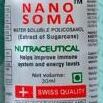Introduction
Ivermectin, a medication initially developed to treat parasitic infections, has gained significant attention as a potential treatment for a range of conditions, including COVID-19. While some herald it as a miracle drug, others caution that it might be overhyped. This article aims to explore the scientific evidence behind Ivermectin and its efficacy in various applications.
What is Ivermectin?
Ivermectin is an antiparasitic agent that was first approved for human use in 1987. It is widely used to treat conditions caused by parasitic worms, such as river blindness and lymphatic filariasis, as well as certain skin conditions. Its effectiveness in these areas is well-documented, but its potential uses beyond these applications are more contentious.
The COVID-19 Debate
During the COVID-19 pandemic, Ivermectin received widespread attention as a potential treatment option. Proponents suggested it could inhibit the virus’s replication, citing preliminary studies. However, many of these studies were criticized for poor methodology, small sample sizes, or lack of rigorous peer review.
Major health organizations, including the World Health Organization (WHO) and the U.S. Food and Drug Administration (FDA), have advised against using Ivermectin for COVID-19 outside of clinical trials, emphasizing that the evidence supporting its efficacy is insufficient.
Risks and Side Effects
While Ivermectin is generally considered safe for its approved uses, it is not without risks. Misuse or overuse can lead to serious side effects, including dizziness, nausea, low blood pressure, and allergic reactions. Moreover, taking it without medical supervision for unapproved uses can be dangerous and is not recommended.
Conclusion
Ivermectin is a valuable medication for specific parasitic infections, but its reputation as a miracle cure for various other ailments, particularly COVID-19, is not backed by robust scientific evidence. Patients should consult healthcare professionals and rely on proven treatments rather than unsubstantiated remedies. As research continues, it is crucial to base decisions on credible data rather than hype.
